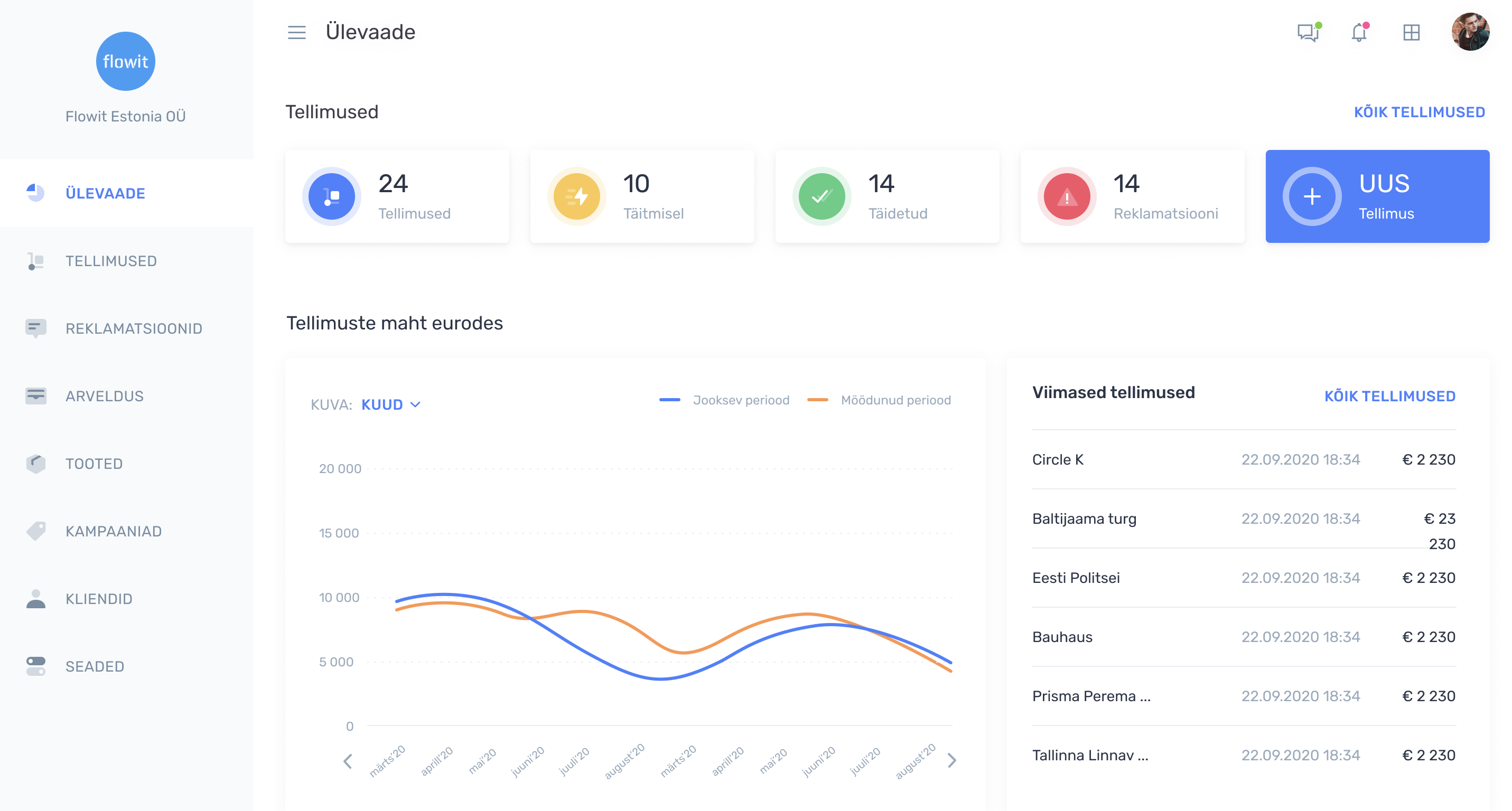The COVID-19 crisis created a deep gap between companies that could continue working remotely and those that had to suspend their businesses temporarily. The deepening economic crisis is accelerating the demise of companies that are slow to adopt innovative solutions, while the efficient and digitalised companies are emerging from the crisis more reliable than before.

The two months of social distancing made the idling e-Tiger (Tiger Leap) jump faster again. Distance work and learning platforms, as well as video conferencing applications, gained tens of thousands of new users. Other services crucial to business livelihood were digitised at an accelerated pace. For example, you no longer have to go to a physical bank to use most banking services or go to a notary when buying real estate. Meanwhile, decreased sales numbers immediately motivated hundreds of Estonian merchants to open online stores. However, many of those that weren’t able to adopt such innovative solutions fast enough had to close their businesses.
During the crisis, the Estonian Health Board got criticised on how they collected data about the virus manually, using multiple different databases. Unfortunately, the situation in many private companies is in the same miserable state. Throughout Estonian industrial companies, the level of automation is almost nonexistent. At nearly all manufacturers, as well as at most service providers and government agencies, a significant portion of work done manually, could be automated.
Will the companies that haven’t adopted innovative solutions to speed up their work, who now had to lay-off a third of their workers, even survive?
The key to survival lies in the adoption of innovative solutions. Before the pandemic, people in meetings often said that it was not the right time to invest in innovative solutions because there was too much work to be done. By today, the situation has changed dramatically. However, there are changes we can still make that will help us survive the crisis and emerge stronger.
Companies that rely on state support will probably survive until autumn without having to change anything. Giving them enough time to start using innovative solutions in the company.
It is necessary to adapt to the new ways of working, but also lower turnovers due to the economic downturn as well as new consumer habits.
As people start running back to physical shops and restaurants, they will no longer mass-order goods online. Due to that, only those online stores will survive who offer their customers at least the same quality shopping experience as in a regular store. While it is not possible to touch the products in an online store, customers must be offered some benefits in terms of convenience, speed, and user-friendliness. And this should be provided to the person by a computer.
Meanwhile, manufacturing and service companies must be prepared to serve customers in a smaller team, faster and more efficiently, and perhaps at a lower price.
The companies that will emerge from the crisis stronger are the ones that adapt to new realities quickly and can bring to market new services even at these difficult times.
Today is a great time to review your current work processes, business model, and ask these four crucial strategic questions:
- Are we working as efficiently as possible?
- Do we already use all available digital solutions that save us time and money?
- Can some of our processes be automated?
- What new products and services can we bring to the market?
Companies that have been engaged in digitalisation and automation for a while already have a competitive advantage. Still, until the economy turns to new growth, it is possible to catch up with those companies. This is the last chance to change existing work processes and be among the companies that can benefit from the crisis.
The fear of automation being expensive has no merit. It might have been true 10-15 years ago, but since then, much has changed.
Approximately 60 per cent of the work done today can be done by robots, which are significantly more efficient than people. Meanwhile, you can achieve further savings through the use of web-based software services, off-the-shelf software, or custom-made digital solutions.
Once your employees stop spending time on the same repetitive actions, they can engage in tasks that require creativity and intelligence, such as product development and finding new customers.
Companies that don’t adopt innovative solutions will not improve even after the pandemic has ended. After the health crisis, we must also survive the economic crisis. That’s where exclusion won’t help any longer—instead, only the more efficient, effective, and automated solutions do.




